RIYADH: The capital of Saudi Arabia played host to leaders, experts, and investors from across the global tourism industry on Wednesday, the opening day of a conference officially marking World Tourism Day, which was established by the UN World Tourism Organization in 1980 and is celebrated on Sept 27 each year.
The special event, which aims to acknowledge the power of tourism in bringing diverse cultures closer together, attracted more than 500 government officials, industry leaders, UN delegates, and foreign and regional journalists from 120 countries.
The first day of the two-day event included panels, networking sessions and announcements focusing on the main themes of sustainability, environmental impacts, education and job creation.
It comes at an exciting moment for tourism in Saudi Arabia as new destinations spring up across the Kingdom thanks to public- and private-sector investment in the sector and the introduction in September 2019 of the country’s flexible e-visa system for visitors.
“In less than five years, the Kingdom has gone from an unknown to a must-see destination, and I am confident countries everywhere are inspired by this example and will follow it themselves,” Zurab Pololikashvili, secretary-general of the UNWTO, told delegates during the opening ceremony.
“This is a country that always looks forward, and in big ways. The Kingdom is also a top investor in tourism. Our latest tourist investment report, with the Financial Times, showed that Saudi Arabia is now the second-biggest place for foreign direct-investment projects in all the Middle East and Africa. I’m proud to say we count on the support of Saudi Arabia.”

The first day of the two-day event included panels, networking sessions and announcements focusing on the main themes of sustainability, environmental impacts, education and job creation. (AN photo by Huda Bashatah)
The Kingdom is the chair of the UNWTO Executive Council this year, and hosts its Middle East headquarters. In June last year, Saudi Arabia hosted the 116th session of the council, one of the outcomes of which was the Jeddah Call to Action, which acknowledged the urgent need for greater and better governance of the tourism sector, including targeted investments and a focus on advancing sustainability, building resilience, and enhancing training and education.
Reflecting the conference’s core themes of “people, planet and prosperity,” the first day’s events focused on the themes of sustainability, combating climate change through responsible tourism and travel, bridging cultures, and empowering youth.
The main sessions included “The Power of Tourism: Building Bridges,” which featured an expert panel with Julia Simpson, CEO of the World Travel and Tourism Council, Nika Gilauri, CEO of Reformatics, Niall Gibbons, head of tourism at NEOM, Leo Wang, CEO of the Swiss Education Group, and Mehmet Nuri Ersoy, Turkiye’s minister of culture and tourism.
“Travel and tourism is an incredibly important sector globally,” Simpson told Arab News. “It employs one in 10 people on the planet, and of every $10 that are made on the planet, one (dollar) comes from travel and tourism.
“It is really significant that Saudi Arabia has been hosting the UN World Tourism Day here in Riyadh. The reason it is significant is that the Kingdom of Saudi Arabia has decided to invest $800 billion in the sector to pivot its economy.”
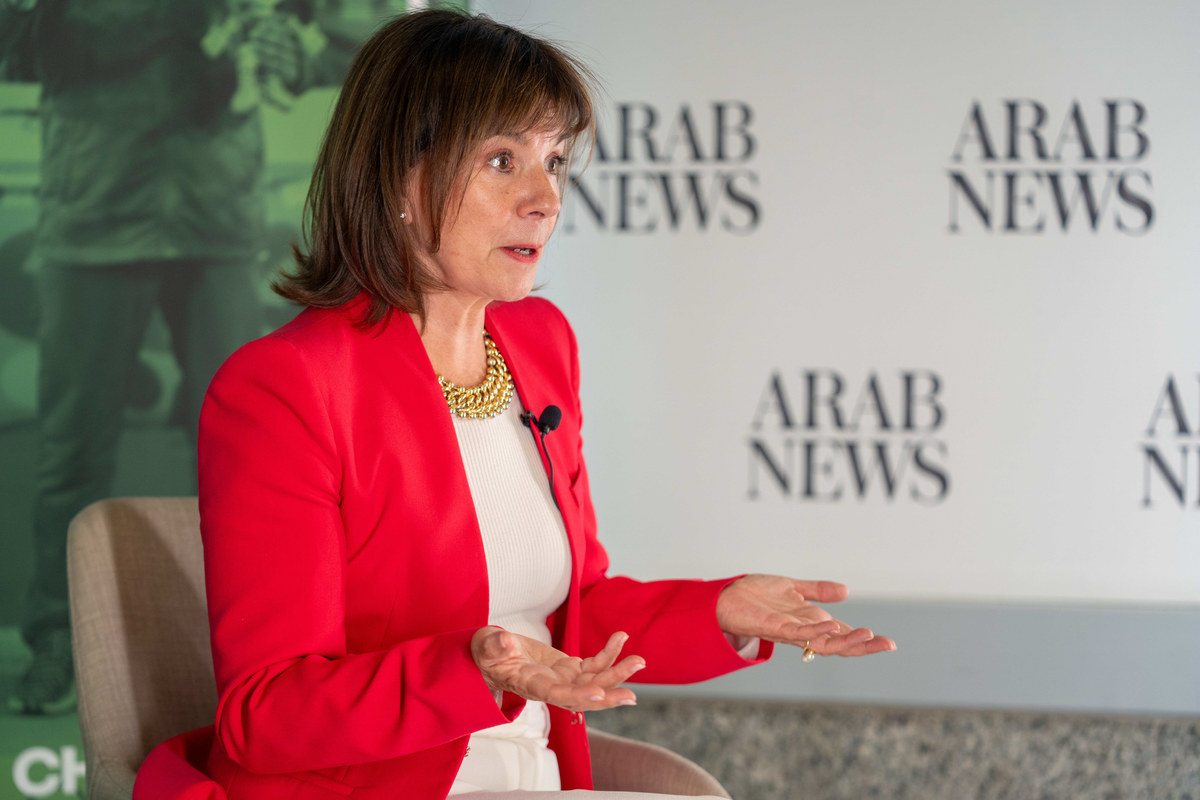
Julia Simpson, CEO of the World Travel and Tourism Council, told Arab News that the travel and tourism sector employs one in 10 people on the planet. (AN photo by Huda Bashatah)
In his opening remarks on Wednesday, Ahmed Al-Khateeb, the Saudi minister of tourism, highlighted the industry’s rapid transformation in recent decades.
“In 1970, international tourism and travel accounted for less than 3 percent of the global GDP (gross domestic product), and today it is strongly rebounding from the pandemic, rapidly approaching 10 percent,” he said.
“As a sector, the number of travelers has risen from 180 million in the early 1970s to nearly 1.5 billion travelers in 2019, representing an increase of almost 700 percent.”
While the Saudi tourism industry, like those of other nations, suffered as a result of the COVID-19 pandemic, it has rapidly bounced back thanks to multi-billion-dollar investments that are expected to create a million jobs over the next 10 years and double the number of foreign visitors by 2032.
“Saudi Arabia is a great oil producer and one of the critical powers at the axis of the world,” said Simpson. “But the Saudis have also decided, as a relatively young country, that they want to open up to visitors from around the world and they are putting their money where their mouth is and have some very interesting projects on the rise.”
Tourism is responsible for about 8 percent of global carbon emissions, in particular as a result of flights and other modes of transport, and high energy consumption by the hospitality industry.
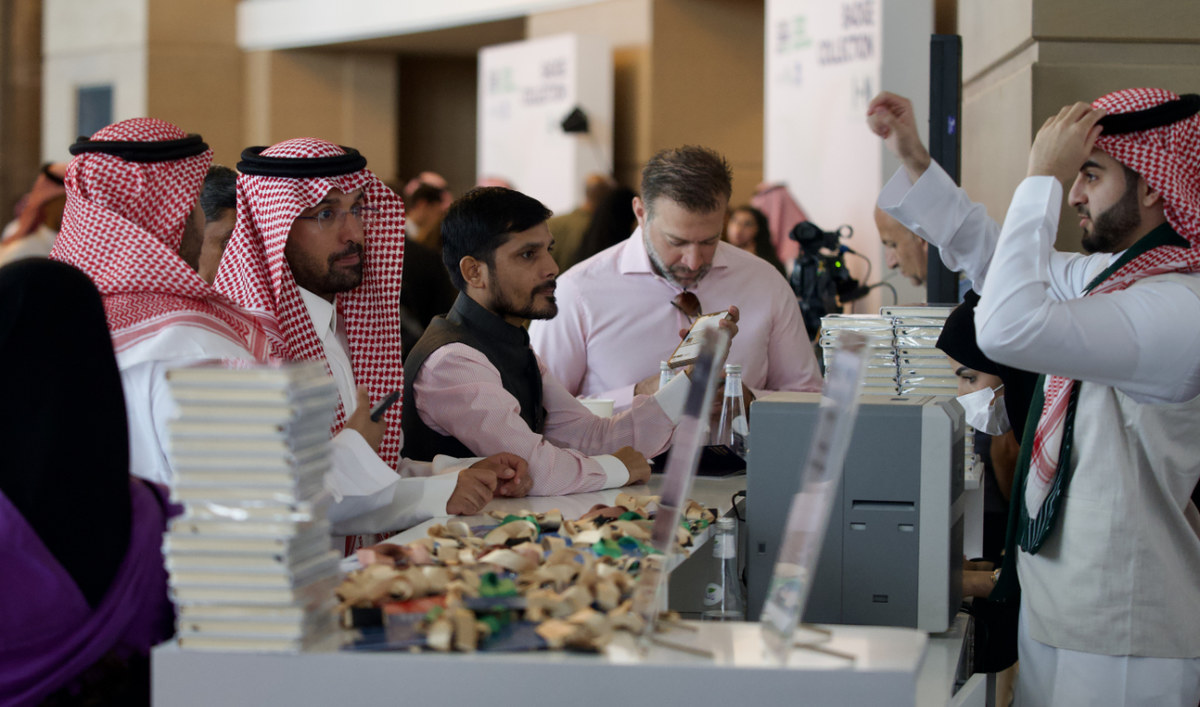
Saudi Arabia is the chair of the UNWTO Executive Council this year, and hosts its Middle East headquarters. (AN photo by Huda Bashatah)
Mindful of the need to reduce emissions and promote environmentally sustainable practices, Saudi Arabia is doing its bit to protect natural habitats and aid biodiversity. In the Kingdom’s ancient desert region of AlUla, for example, authorities are planting native trees, protecting endangered species, and even reintroducing big cats such as the Arabian leopard.
On the Red Sea coast, meanwhile, the Kingdom is building a scientific center to study the health of the world’s coral reefs.
“The environment is critically important to travel and tourism for two reasons,” Simpson told Arab News.
“Firstly, people will not want to travel the world if there isn’t a world of beautiful things and creatures to see. It is in our best interests to protect and be guardians of the natural biodiversity around us.
“Secondly, we need to understand our impact in terms of greenhouse gas emissions on travel and tourism.”
Research is underway in the Kingdom to develop lighter planes and identify the best operational routes to prioritize the efficient use of fuel, Simpson added.
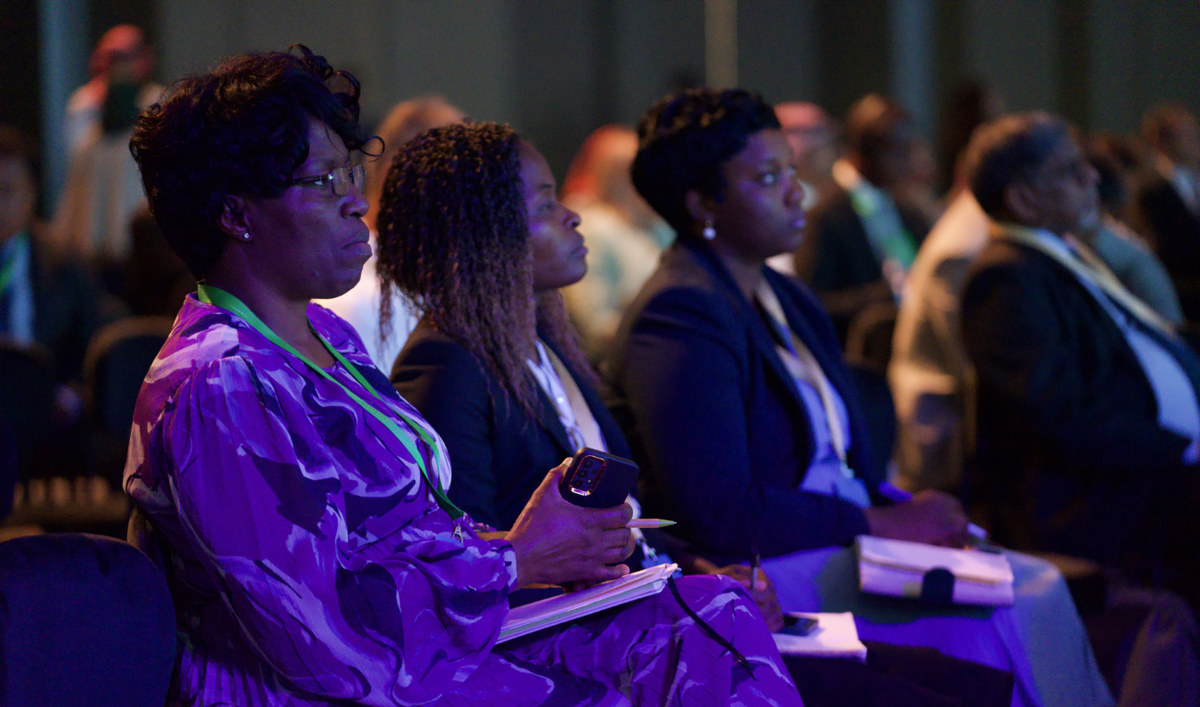
In June last year, Saudi Arabia hosted the 116th session of the council, one of the outcomes of which was the Jeddah Call to Action, which acknowledged the urgent need for greater and better governance of the tourism sector. (AN photo by Huda Bashatah)
Peter Bellew, chief operating officer of the recently established Riyadh Air, told Arab News how, as a brand new airline, it is able to start out with the most sustainable practices, including their investment in the innovative Boeing 787 aircraft.
“We don’t have a legacy to rely on, so we can really do everything fresh from the ground up,” he said. “The Boeing 787 is the most fuel-efficient aircraft ever created. It has got unbelievable carbon fiber technologies and very efficient engines.
“Also, the way we’ve trained our crew and the way we will fly the aircraft will use every available possible method for saving fuel and reducing carbon emissions onboard the aircraft.
“We’ll be focused on recycling. And at the airports where we operate we’ll be trying to optimize the use of electronic ground equipment. We will also be trialing hydrogen-powered ground equipment as well.”
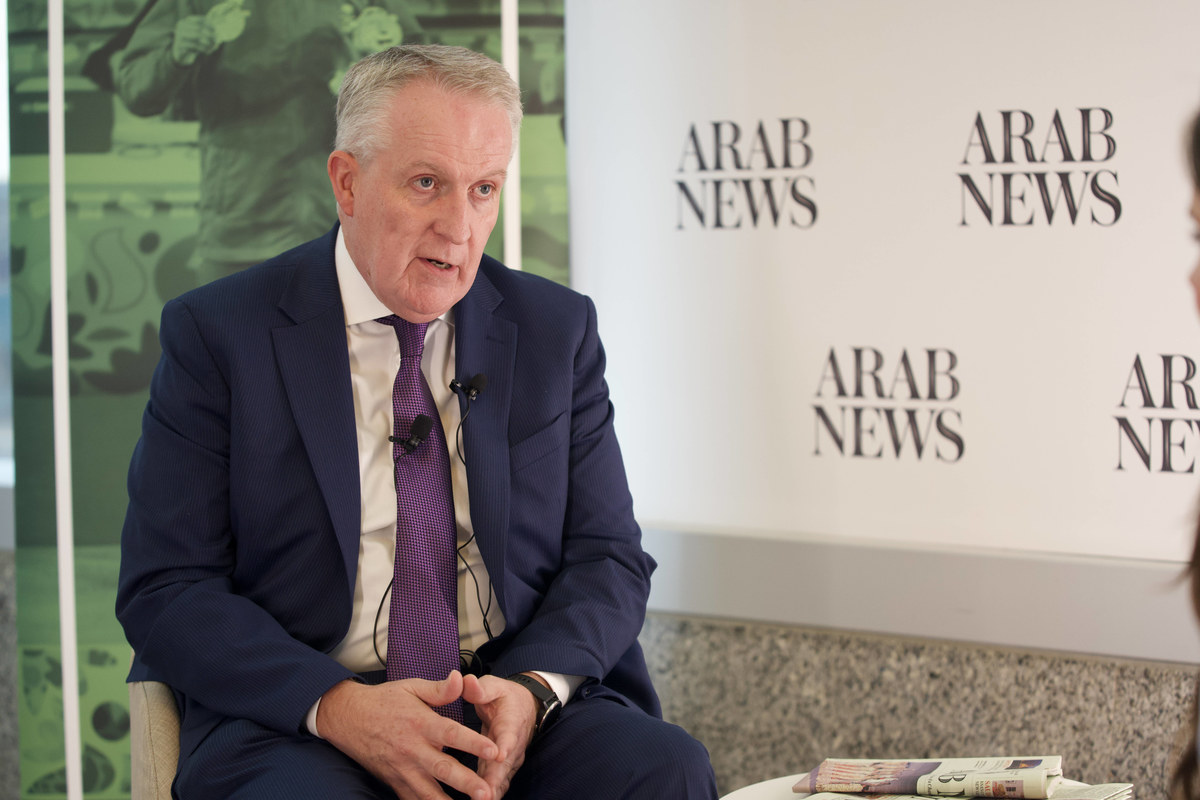
Peter Bellew, COO of Riyadh Air, told Arab News how, as a brand new airline, it is able to start out with the most sustainable practices, including their investment in the innovative Boeing 787 aircraft. (AN photo by Huda Bashatah)
Another session during the conference on Wednesday, titled “Investing in Our Destinations: The Potential of the Undiscovered,” highlighted the variety of new destinations across the Kingdom and around the world.
The speakers included Gines Martinez Cerdan, CEO of Jumbo Tours Group, part of Alpitour World, Gregory Djerejian, the group head of investments and legal at Red Sea Global, Roula Jouny, CEO of Tourism 365, Rosa Ana Morillo Rodriguez, Spain’s minister of industry, trade and tourism, and Doan Van Viet, Vietnam’s deputy minister of culture, sports and tourism.
Djerejian said the Kingdom’s western coastline is developing rapidly, with a range of new hotels and resorts due to begin opening as early as November this year.
“The first hotel we will be opening is the Six Senses, nestled in the plateau of the dunes with a prominent spa component,” he told Arab News.
“We are taking bookings from Nov. 1, and on the heels of that we have the St. Regis and Nujuma, a Ritz Carlton Reserve on the Ummahat Islands.”
In 2024, Red Sea Global will also open Desert Rock, a resort within the dramatic desert landscapes of the Red Sea coast, designed by Oppenheim Architecture.
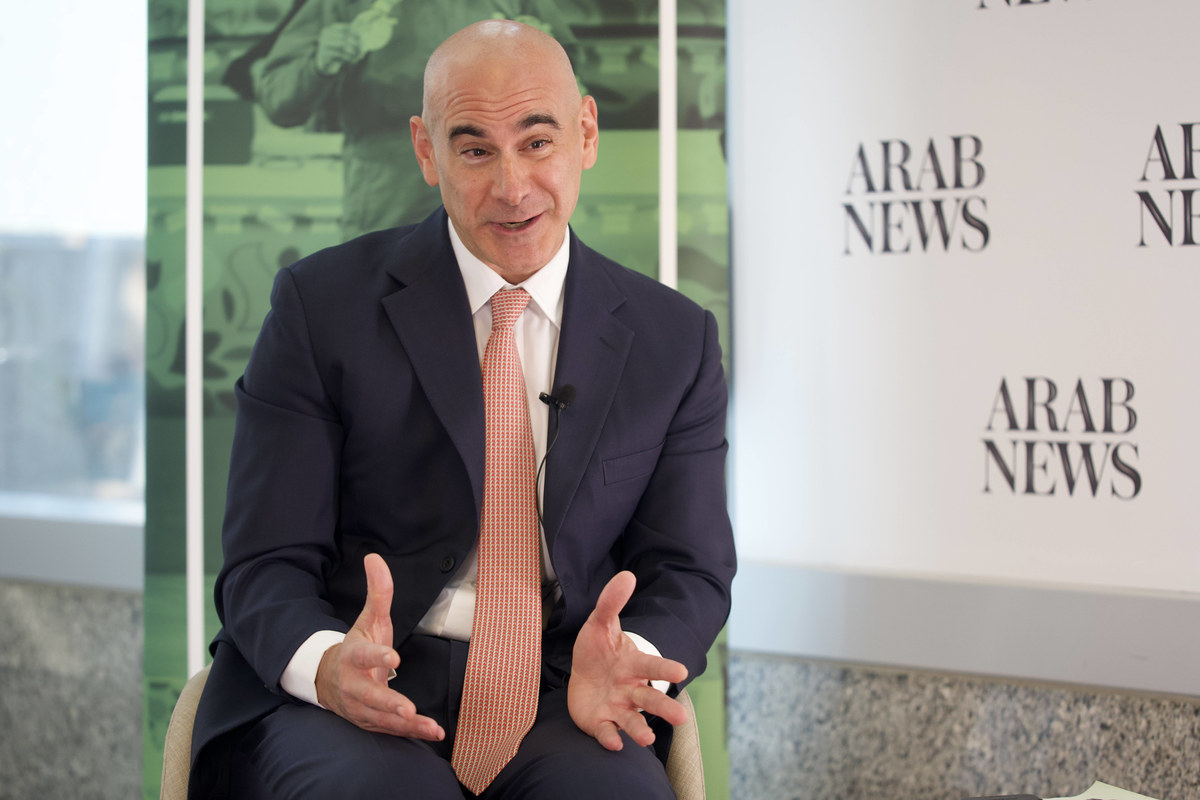
Gregory Djerejian, the group head of investments and legal at Red Sea Global, said Red Sea Global is actively training young Saudis to work in the sector through a variety of initiatives and partnerships with a number of institutes.(AN photo by Huda Bashatah)
Another highlight of the conference’s opening day was a session on the importance of education in the hospitality industry and the empowerment of Saudi youth.
Djerejian said Red Sea Global is actively training young Saudis to work in the sector through a variety of initiatives and partnerships with a number of institutes.
“We view that as an important part of our mandate because this is their country, this is their future,” he said.
Al-Khateeb, the minister of tourism, announced the inauguration of the Riyadh School for Tourism and Hospitality. It is, he said, “a gift from Saudi Arabia to the world.”
Authorities in the Kingdom are prioritizing job creation for young people below the age of 34, who make up the majority of the nation’s population. The tourism industry will account for many of those new positions.
“There has been a vast change in the sector over the last few years,” Guenter Gebhard, regional vice president and general manager at the Four Seasons Hotel Riyadh, told Arab News.
“I’ve been in Saudi since 2018 and we have witnessed dramatic changes in the sector and in the employment of Saudi nationals as well. Whereas, I think, four or five years ago hospitality and tourism were still seen as not a prominent sector to work in, it has developed more and has become an aspirational career track for many young Saudis.
“We’re looking into development programs within our company as well, such as building an academy to educate and bring Saudis more into the tourism sector and there’s a strong demand for it. We already have eight projects in the pipeline.”
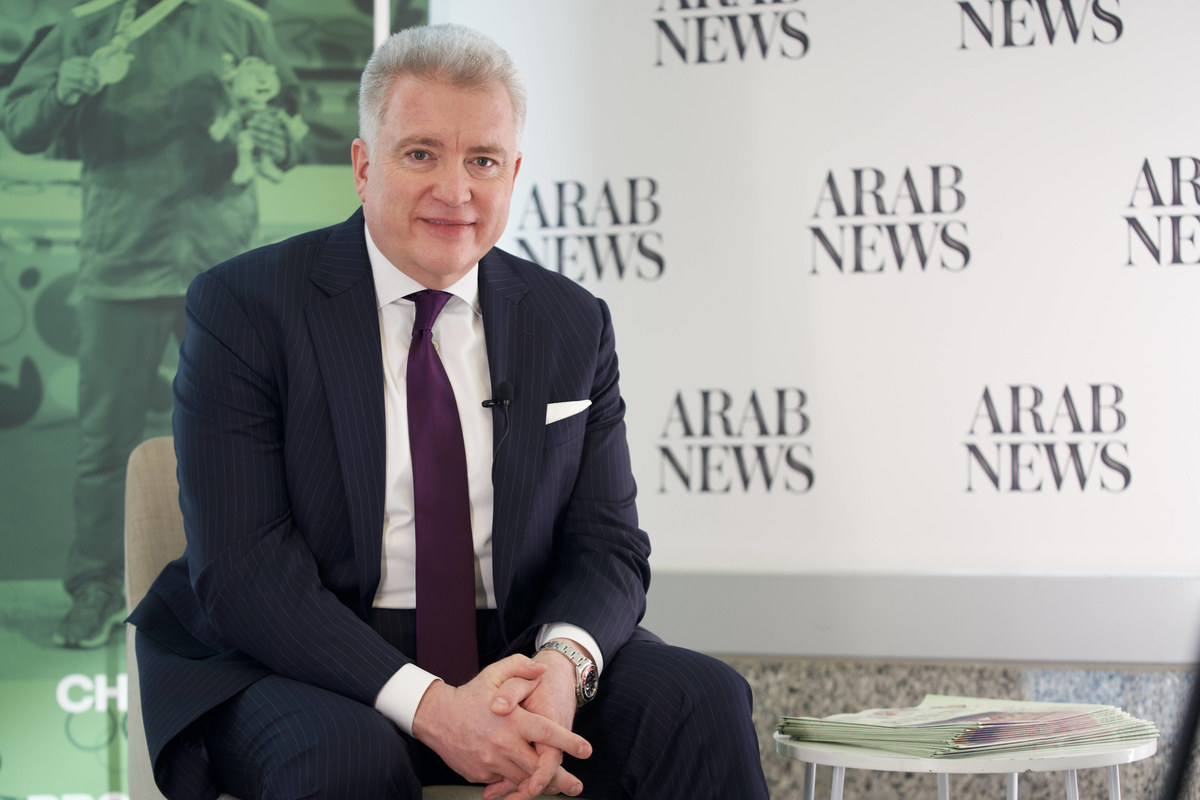
Guenter Gebhard, regional vice president and general manager at the Four Seasons Hotel Riyadh, said there are development programs within their company to educate and bring Saudis more into the tourism sector. (AN photo by Huda Bashatah)
The long-term ambition is to create senior leadership roles in the industry for young people from the Kingdom eventually to fill.
“We are trying to find ways to nurture that drive for positive engagement to bring educated individuals into the industry and become the future leaders,” said Gebhard.
“I’m looking forward to appointing the Saudi general manager (of the Four Seasons) in the next couple of years.”

















